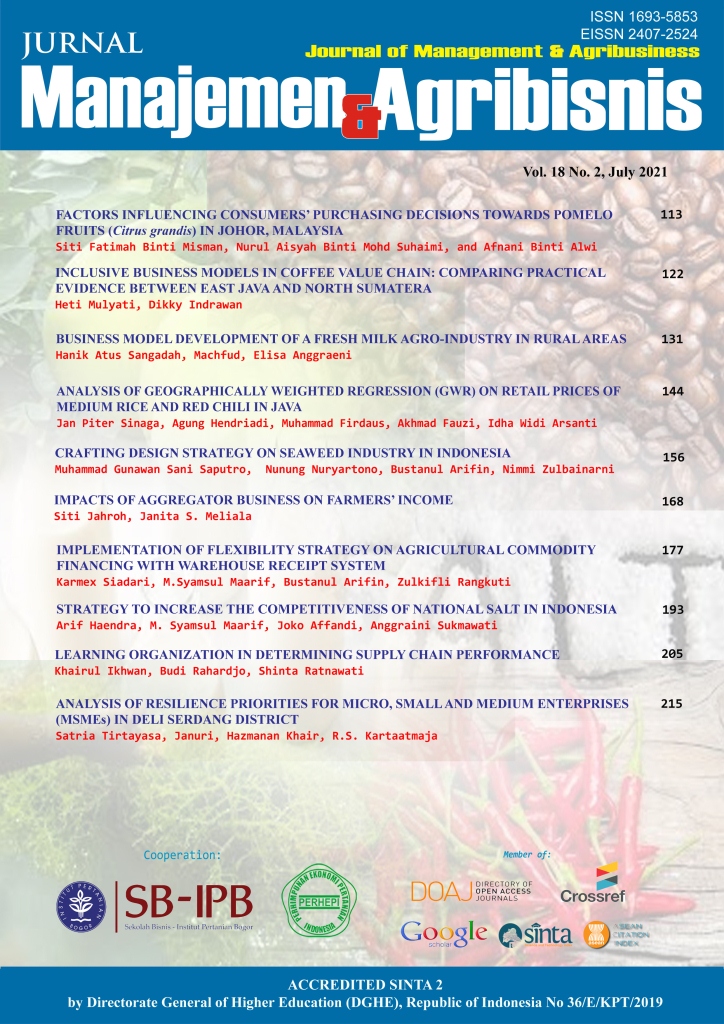The Implementation of Flexibility Strategy on Agricultural Commodity Financing With Warehouse Receipt System
Abstract
The implementation of warehouse receipt financing system for agriculture commodities has not been successfully developed in Indonesia, some constraints are hindering the system to grow. Flexibility strategy is conceptually applicable to minimize gaps in the system to its environment. This research was conducted to determine an adaptive warehouse receipt financing system using strategic flexibility. The research was carried out by ways in-depth interviews and focus group discussions with respondents with knowledge of or experience in warehouse receipt financing systems for commodities such as coffee, pepper, rice and maize. Analysis was done using Soft System Methodology (SSM) and Interpretive Structural Model (ISM) analysis to define conceptual models of flexibility strategy applied in warehouse receipt financing systems. The research findings, flexibility strategy is applicable in the warehouse receipt financing system: applying resource flexibility on input side to select the most efficient material to develop the product, applying resource and coordination flexibility in internal process to optimize internal processing, applying internal resources and coordinating flexibility on output distribution to expand the market and applying coordination flexibility to respond external condition. However, applying a flexibility strategy to respond externally was found to be the most suitable to adapt agriculture commodities financing on warehouse receipt system to its environment.
Keywords: agricultural commodities, financing constraints, flexibility strategy, warehouse receipt system
Authors
Authors who publish with this journal agree to the following terms:
- Authors retain copyright and grant the journal right of first publication with the work simultaneously licensed under a Creative Commons Attribution License that allows others to share the work with an acknowledgement of the work's authorship and initial publication in this journal.
- Authors are able to enter into separate, additional contractual arrangements for the non-exclusive distribution of the journal's published version of the work (e.g., post it to an institutional repository or publish it in a book), with an acknowledgement of its initial publication in this journal.
- Authors are permitted and encouraged to post their work online (e.g., in institutional repositories or on their website) prior to and during the submission process, as it can lead to productive exchanges, as well as earlier and greater citation of published work (See The Effect of Open Access).

